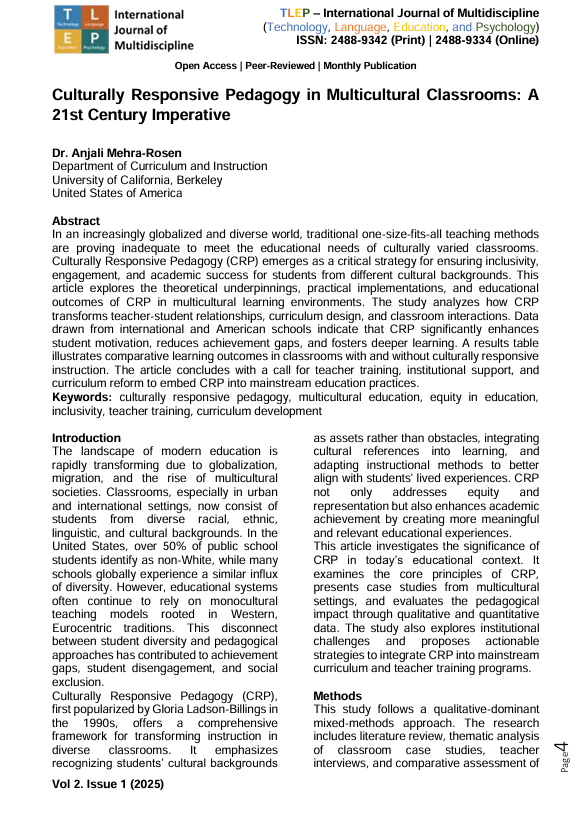The Integration of Smart City Technologies in Urban Development: A Case Study of Polish Metropolitan Areas
Keywords:
Smart cities, urban development, Poland, digital transformation, sustainable cities, ICT, governanceAbstract
As cities face growing challenges related to rapid urbanization, climate change, and digital transformation, the implementation of smart city technologies has become a pivotal strategy for sustainable urban development. Poland, a rapidly developing EU country with a dynamic urban sector, has increasingly embraced smart technologies to modernize its infrastructure, improve quality of life, and boost economic efficiency. This study investigates the adoption and impact of smart city solutions in Polish metropolitan regions, focusing on areas such as mobility, energy management, e-governance, and environmental monitoring. Through qualitative analysis and comparative case studies of Warsaw, Kraków, and Wrocław, this article explores how Polish cities are navigating the opportunities and limitations of becoming “smart.” The results indicate a growing alignment between urban policy and technological innovation, although gaps remain in citizen participation, data governance, and inter-city coordination.
References
European Commission. (2020). European Smart Cities Framework. Brussels: EC Publications.
Ministry of Development Funds and Regional Policy (Poland). (2022). Smart Development Strategy 2030. Warsaw.
Kowalski, P., & Zając, M. (2021). “Digital Governance and Smart Cities in Poland.” Journal of Urban Technology, 28(3), 78–94.
UrbanLab Gdynia. (2023). Smart City Practices in Polish Municipalities. Gdynia: UrbanLab Reports.
European Investment Bank. (2021). Smart Infrastructure Financing in Central Europe. Luxembourg.
Giffinger, R., & Gudrun, H. (2019). “Smart Cities Ranking: An Effective Instrument for the Positioning of the Cities?” Journal of Urban Planning and Development, 145(2), 04019012.
UN-Habitat. (2020). People-Centered Smart Cities: A Guide for Urban Leaders. Nairobi.





